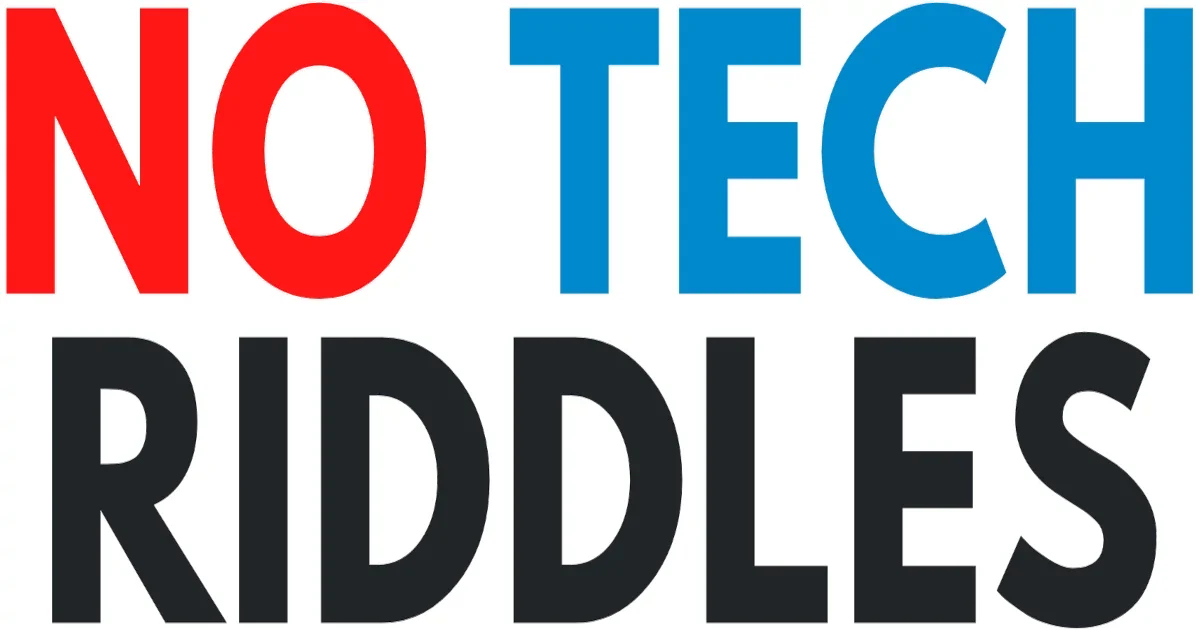Are you sick of cleaning your windows with harsh chemicals that leave streaks and make you feel bad? It’s time to switch to window cleaning products that are better for the environment.
Not only are these ingredients better for the environment, but they also make your home or business safer and easier to clean.
In this article, I’ll talk about the benefits of cleaning your windows with eco-friendly products and give you some easy and cheap ways to make the switch.
So, let’s get started on our way to a cleaner and greener future!
Eco-Friendly Window Cleaning

Eco-Friendly Ingredients for Window Cleaning
Ammonia, which is often found in traditional window cleaners, is good at cutting through grease, dirt, fingerprints, and dried cooking spills.
Ammonia-based cleaning products, on the other hand, can damage things like plastic, vinyl, and chrome trim.
They can also quickly break down the wax on window tint.
One more common thing that can be used to make a window cleaner is vinegar.
As a solvent, it can get rid of grease, germs, and mold.
Ammonium hydroxide or a solution of ammonia is the main ingredient in commercial glass cleaners like Windex.
Water, surfactants, solvents, and fragrances are also in these cleaners.
Surfactants lower the surface tension of water, which makes it easier for water to get into dirt and grime.
Solvents, on the other hand, break down tough dirt and grease.
Fragrances are added to cleansers to cover up their smell.
But some window cleaning products have chemicals that are bad for you, like butyl cellosolve/glycol ether and phthalates.
These chemicals can cause skin or lung irritation, watery eyes, or chemical burns.
Some, like cancer, are linked to long-term or chronic effects.
To avoid these dangerous chemicals, you can use window cleaners that are non-toxic and safe to use around kids and pets.
Impact of Chemicals on the Environment
Chemicals can have a big effect on the environment, depending on how much of them are released, what kind they are, how much of them there are, and where they are.
When chemicals are made, used, or thrown away, they can get into the air, water, and soil.
Persistent organic pollutants, or POPs, are dangerous chemicals that harm people’s health and the environment all over the world.
POPs can be moved by wind and water, and most POPs made in one country can and do affect people and wildlife far from where they are used and released.
The ozone layer, which is in the upper atmosphere of Earth, can also be hurt by chemicals.
In the 1980s and 1990s, the government worked to cut down on CFCs, which are a dangerous type of air pollution.
CFCs can be found in foam products, aerosol cans, and the gases that keep refrigerators cool.
Chemicals can also pollute the air, land, and water, which is bad for the environment and for people’s health.
Many dangerous waste sites and industrial facilities have been polluting the environment for decades and still do.
Pollutants in the environment can look and smell pretty bad, but they have effects that go beyond how they look and smell.
Some pollutants are hard to get rid of, so they build up in the food chain.
Fish and other wildlife can eat or absorb these pollutants, which can then be eaten by people.
Chemicals can also get into sediments, which can hurt large parts of the coast, put people’s health at risk, and hurt the economy of places where a healthy coastal environment is important.
Health Risks and Alternatives
Cleaning the windows is an important part of keeping our homes and offices clean and bright.
But people who use traditional window cleaning products might be putting their health at risk.
Ammonia and isopropyl, which are found in most window and glass cleaners, can be irritating to the eyes, skin, nose, and throat.
Windshield washer fluid contains chemicals like methanol, ethylene glycol, and isopropanol, which can irritate the lining of the nose, mouth, and throat and hurt the nervous system, liver, kidneys, heart, and brain.
How dangerous they are to your health depends on what they are.
Some pose immediate dangers, like skin or lung irritation, watery eyes, or chemical burns, while others can cause long-term, or chronic, problems, like cancer.
The Hazards of Traditional Window Cleaning Products
When cleaning, chemicals like volatile organic compounds (VOCs) and other chemicals are released into the air.
This can cause long-term breathing problems, allergic reactions, and headaches.
Frequent use of spray cleaning products, especially air fresheners, glass cleaners, and furniture sprays, has been linked to more wheezing.
Even products that say they are “green” or “natural” might have ingredients that are bad for your health.
Cleaning windows can be a dangerous job, especially if you use old-fashioned products that might be bad for your health.
Health and safety risks for window cleaners include falling off a ladder or sill, through a weak roof, or because their access equipment isn’t good enough.
To reduce the risks, it is important to choose the right access equipment for the job and to do a risk assessment before each job to figure out what the risks are and how they can be reduced.
Eco-Friendly Alternatives to Traditional Window Cleaning Products
There are a number of easy-to-make, eco-friendly alternatives to traditional window cleaning products that work just as well.
One of the most popular natural cleaners is vinegar, which you can mix with water to make a window cleaner that doesn’t leave streaks.
Lemon juice, baking soda, vodka, essential oils, and Castile soap are all other ingredients that work just as well.
When mixed with water, these ingredients can be used to make a homemade window cleaner that is safe for the environment and your health.
- Vinegar: White vinegar is a classic home cleaning product that is effective in cleaning windows. It can be combined with water to create a streak-free window cleaner.
- Hexoxyethanol: Another recipe for an eco-friendly window cleaner includes 1/4 cup of white vinegar and hexoxyethanol. This recipe is safe, cheap, simple, and effective.
Eco-Friendly Window Cleaning Products
There are also a number of window cleaning products on the market that are safe for the environment.
The Environmental Working Group gave Biokleen Glass Cleaner an A for safety, which means it is a good glass cleaner.
Method Glass + Surface Cleaner is also a gentle and effective glass cleaner that comes highly recommended.
EarthHero is a one-stop shop for green cleaning products, such as window cleaners that are safe for the environment.
Using natural cleaning products is a good idea for your family’s health and for the environment.
The ingredients in homemade window cleaners are safe and won’t hurt your health or the environment.
They are also cheap and easy to make.
You can clean your windows without hurting your health or the environment if you use ingredients that are safe for the environment.
Protect Your Windows and the Environment with UV Protection Formula
When it comes to window cleaning, it’s important to not only keep your windows sparkling clean but also protect them from harmful UV rays.
That’s where UV protection formula comes in.
This eco-friendly ingredient is designed to shield your windows from the damaging effects of the sun, such as fading and cracking.
Not only does it protect your windows, but it also helps to reduce your energy bills by blocking out heat and keeping your home cooler.
By using a window cleaner with UV protection formula, you can ensure that your windows stay in top condition while also doing your part for the environment.
So, next time you’re shopping for window cleaning products, look for ones that contain this essential ingredient.
For more information:
UV Protection Formula: Benefits, Safety, & More

Effectiveness and Natural Ingredients
Eco-Friendly Ingredients for Window Cleaning
Eco-friendly cleaning products are becoming more popular as people learn more about how traditional cleaning products affect the environment and human health.
Traditional cleaning products are good at getting rid of dirt, but eco-friendly cleaning products are also good because they are made to clean, sanitize, and disinfect.
In fact, a study in the American Journal of Industrial Medicine found that cleaning products that are better for the environment may be safer for custodians’ health than traditional cleaning products.
Identifying Greener Cleaning Products
It can be hard to find cleaners that are better for the environment, but ecolabels are a good way to find “greener” products quickly and easily.
The Environmental Protection Agency (EPA) says that using green cleaning products is a good way to reduce the risks to health and the environment that come with cleaning.
The EPA also warns that cleaning products can be bad for people’s health and the environment because they may contain chemicals that irritate the eyes, skin, lungs, or other parts of the body.
Eco-Friendly Glass Cleaners
There are a number of effective and safe for the environment and human health glass, window, and mirror cleaners on the market.
Biokleen Glass Cleanser is one of the best eco-friendly glass cleaners on the market.
It got a full 5 out of 5 stars.
Bean & Lily Glass Cleaner is another great glass cleaner that is safe for the environment, cleans well, and leaves a beautiful, crystal-clear shine.
Green cleaners may take a little more work than traditional cleaners, but they are getting better and cheaper.
Green ways of cleaning can help you save money, for example by letting you use less.
Natural Ingredients for Window Cleaning
There are a number of natural things that can be used to clean windows.
Make your own glass cleaners with white vinegar, lemon juice, and essential oils.
The best homemade window cleaner has a pleasant scent, and many essential oils have natural chemical components that both clean and smell nice.
For example, tea tree essential oil can kill bacteria, stop infections, and kill fungi.
Rubbing Alcohol
The other natural thing that can be used to clean windows is rubbing alcohol.
When you add rubbing alcohol to a recipe for window cleaner, the solution evaporates faster on glass, which makes it less likely that water spots will be left behind.
But rubbing alcohol is very flammable, so it should be kept away from kids and pets and in a safe place.
Dish Soap
Another natural thing that can be used to clean windows is dish soap.
It is one of the best things you can use to clean windows at home, and you don’t need much of it.
Adding a little dish detergent to a mixture of vinegar and water can help get rid of chalky streaks and filmy residue on windows.
Other Natural Ingredients
Denatured alcohol, lemon juice, and baking soda are also natural things that can be used to clean windows.
A natural window cleaner can be made by putting denatured alcohol, dish soap, and water in a spray bottle.
When mixed with water, lemon juice can be used to clean windows.
When baking soda and water are mixed together, they make a paste that can be used to clean windows with tough stains.
In the end, cleaning products that are good for the environment are a great alternative to other kinds.
They work well, are safe for people and the environment, and can save you money in the long run.
Using natural ingredients, you can make a homemade window cleaner that works just as well as the ones you can buy in stores.
So, the next time you have to clean your windows, try using ingredients that are good for the environment and see what a difference it makes.
DIY and Certifications
Eco-Friendly Window Cleaning: A Guide to Natural Ingredients
You don’t have to use harsh chemicals that are bad for the environment and your health to clean your windows.
You can make your own eco-friendly window cleaner at home with just a few simple items.
This is how:
Homemade Window Cleaning Solutions
- Vinegar and Water: Mix one part vinegar and one part water in a spray bottle. Add a few drops of essential oil to improve the smell.
- Rubbing Alcohol, Water, and White Vinegar: Mix one cup rubbing alcohol, one cup water, and one tablespoon white vinegar in a spray bottle.
- Lemon Juice, Vinegar, and Water: Mix one cup water, one cup vinegar, and one tablespoon lemon juice in a spray bottle.
All of these recipes can be used to clean windows with a squeegee or a cotton cloth.
Also, you can reuse and refill the bottles as many times as you want.
This cuts down on plastic waste and gives you more control over what goes into your home.
Store-Bought Eco-Friendly Window Cleaners
If you want to buy an eco-friendly window cleaner instead of making your own, look for products with clear information on the label about how they are good for the environment.
The EPA’s Safer Choice Program checks products like ECOS Window Cleaner and Dr.
Bronner’s liquid soap, which can be diluted and used as a window cleaner or all-purpose cleaner, to make sure they meet their standards.
Choosing Certified Eco-Friendly Products
When shopping for eco-friendly window cleaning products, you should look for certain certifications and labels.
For a product to get the Green Seal certification or the Design for Environment/Safer Choice certification, it must meet a lot of strict rules and high standards.
Another certification to look for is from UL Laboratories.
This shows that a product’s entire life cycle has a small effect on the environment.
But it’s important to be careful when figuring out what vague or general terms like “environmentally friendly,” “eco-safe,” or “green” mean on a product (also known as “greenwashing”).
When shopping for cleaning supplies, you should look for and ask about specifics, such as brand certifications.
Tips for Cleaning Windows
The best way to clean windows is with a soft microfiber cloth to get rid of dust and loose dirt.
Use a clean microfiber cloth to move the homemade window cleaner along the surface of the glass and get rid of dirt and residue that won’t come off.
You can also use coffee filters to clean.
It’s easy and cheap to make your own window cleaner at home that is good for the environment.
By using natural ingredients and choosing products that are certified as being good for the environment, you can cut down on the amount of plastic waste and harsh chemicals in your home.
With these tips, you can protect the environment and your health while keeping your windows sparkling clean.
Disposal and Other Eco-Friendly Practices
Eco-Friendly Ingredients for Window Cleaning
When it comes to cleaning windows, you can do a number of things that are good for the environment.
Not only are these ways of doing things better for the environment, but they can also save money and save time.
Using Environmentally Friendly Cleaning Products
Using cleaning products that are better for the environment is one way to make window cleaning more eco-friendly.
There are many non-toxic, biodegradable, and/or made from renewable resources instead of petroleum cleaning products on the shelves.
You can also clean windows with vinegar and baking soda.
Water, white vinegar, rubbing alcohol, and cornstarch can be used to make window cleaner at home.
ECOS Window Cleaner is another eco-friendly product that has been checked by the EPA’s Safer Choice Program.
Reducing the Use of Single-Use Items
Reducing the use of single-use items is another way to make window cleaning more eco-friendly.
You can wipe windows with a newspaper or a soft cloth instead of a paper towel.
Single-use items can also be thrown away to cut down on waste.
You can use washing soda to clean windows, tiles, and even the windshields of cars.
It is a gentle solution that can make windows shine and shine again.
Using Purified Water Methods
Another way to clean windows in a way that is better for the environment is to use purified water.
Pure water is a solution that doesn’t use any chemicals and is easy on the environment.
It is also a cheap solution that can cut down on how much detergent is used.
Using a water filtration system, impurities are taken out of the water, leaving clean water that can be used to clean windows without leaving streaks.
Recruiting Local Window Cleaners
Another way to cut down on the carbon footprint of window cleaning is to hire local window cleaners.
If you hire a window cleaner who is close to your business, less gas will be used and the window cleaner will have to travel less.
This can also help local businesses and make the neighborhood stronger.
Proper Disposal of Cleaning Products
It is important to throw away cleaning products in the right way so that they don’t hurt the environment or other people.
Most household cleaning products can be safely thrown away down the drain or in the trash, but it’s important to read the label and follow the instructions.
If there are no special instructions on how to get rid of the product, think about how you use it to figure out the best way to get rid of it.
If you have cleaning supplies that you haven’t used yet, the best and easiest thing to do is to use them up or give them to someone else.
If you can’t find anyone who wants your old cleaners, you can throw them away like any other trash.
But some cleaning products are considered hazardous waste and need to be thrown away in a special way.
Some of these have warnings on the outside that say the contents are dangerous, flammable, or should be handled carefully or kept away from children.
Never put hazardous waste or potentially dangerous cleaning products in the trash or recycling bins because they could hurt people and the environment.
Instead, you should take them to your local transfer station or look at Earth911 to find a place to drop them off.
Conclusion

In conclusion, window cleaning chemicals should be made with ingredients that are good for the environment.
They are better for the environment, and you and your family are safer when you use them.
By using vinegar, baking soda, and lemon juice, which are all natural, you can get a spotless clean without hurting the environment.
But let’s step back and look at the whole situation.
Window cleaning is a small part of our daily lives, but it’s a great place to start when it comes to making choices that are good for the environment.
We can help the environment in a big way by making small changes to how we clean.
So, next time you clean your windows, think about what you’re using and how it affects the environment.
And remember that even small steps toward a more eco-friendly way of life add up.
Let’s work together to make the future cleaner and greener for people to come.
Looking for a new Magnetic window cleaner?
Choosing a gadget can be very difficult if you know nothing about the technology.
Some will pay for features they do not need while others may not consider what they really want.
So I created this quick, newbie guide to help you focus on what is really important to you:
The Best Magnetic Window Cleaner (For You!)
Links and references
- Article on researchgate.net about sustainable surfactants based on bio-based and eco-friendly ingredients
- Website for Triple S, mentioning their EarthCare® Green Guide for eco-friendly cleaning solutions
- Article on paradigmchange.me providing a guide to less-toxic and non-toxic products, including cleaning products.
My article on the topic:

